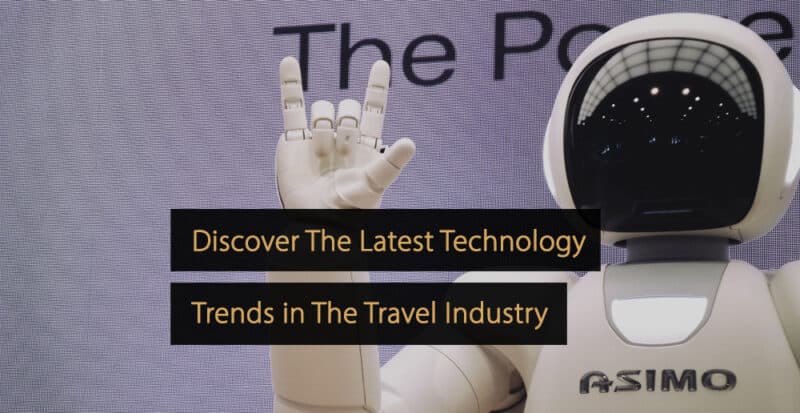The travel industry has always been at the forefront of technological innovation, and in recent years, technology has had a major impact on the way pe
The travel industry has always been at the forefront of technological innovation, and in recent years, technology has had a major impact on the way people travel. From booking and planning their trips to the experiences they have while on the road, technology has made travel more convenient and personalized than ever before.
What is Travel Technology?
Travel technology is a broad term, which is used to describe the application of IT, e-commerce and similar technology solutions within the fields of tourism, travel and hospitality. Hotel and tourism technology may be intended to assist businesses and their employees, improve the travel experience for customers, or both.
Ultimately, the goals or motivations behind implementing travel technology include automating travel and related processes, saving time, reducing costs, and creating a more seamless travel experience for consumers. Technology can be deployed to enhance the customer experience before, during, and after the trip.
Discover The Key Technology Trends in the Tourism & Travel Industry
1. Voice Search & Voice Control
Smartphones, smart speakers and AI assistants have all helped to increase the relevance of voice search as far as technology trends in the travel industry are concerned. In particular, a growing number of travel customers are using voice search to find and book airline tickets, hotel rooms and travel experiences.
It is, therefore, crucial to design your website with voice search in mind, so that you can capitalise on this trend.
On top of this, voice control is also playing a growing role in actual travel experiences too. Within hotel rooms, voice-controlled devices can be used to control lighting and heating within rooms, or to obtain tourist information without needing to speak to a member of staff. This is likely to continue to expand into other areas of the industry too.
2. Robots
Robotics technology is one of the most exciting forms of travel technology and it is constantly improving. Within hotels, for example, robots have been used in concierge-like roles, helping to greet guests when they arrive and provide information. Some hotels have expanded their use further still, involving them in cleaning and luggage handling.
Within restaurants, robots can potentially have a role in food preparation and food service. In airports, they can be used to detect concealed weapons, while some manufacturers are also using robotics to create luggage cases that intelligently follow you. Moreover, travel agents are using robots for pre-screening, making waiting times more productive for customers.
As with many other technology trends within the travel industry, the uses for robots have actually increased in response to COVID, especially as they have the potential to reduce human-to-human contact.
3. Contactless Payments
Another important form of travel tech is the ability to accept contactless payments. This will allow travel companies to process payments much more quickly, including in situations where customers do not have access to cash, or their credit or debit card. It can also enhance the customer experience, because it is a time saver.
The availability of contactless payments started as a convenience, but it has emerged as a key part of tourism marketing in the wake of the coronavirus pandemic. With travellers nervous about the spread of the virus, many are reluctant to handle cash. Using contactless payments as much as possible can also protect your own staff.
Overall, technology has greatly impacted the travel industry and has made it easier and more convenient for people to plan and experience their travels. However, the increasing reliance on technology has also raised concerns about data privacy and security. It is important for travelers to be aware of these issues and to take steps to protect their personal information while on the road.
4. Virtual Reality (VR)
Virtual reality has been an emerging technology in a number of different sectors, but its role within the tourism industry is especially significant. After all, it provides travellers with the ability to experience far away locations from the comfort of their own home, and can be the difference in whether they ultimately complete a booking.
Using VR tours, customers can experience everything from virtual hotels tours and restaurants, to landmarks, national parks or even specific activities. The interactivity and immersion can also help to provide you with a competitive advantage over rivals who are not yet making the most of these kinds of tech trends. Most VR tours or 360 tours are now compatible with mainstream web browsers and can help those who are reluctant to travel due to COVID to see the benefits more clearly.
5. AI Chatbots
AI-powered chatbots can be one of the single most sensible travel technology investments you can make, because these chatbots are able to provide customers with swift answers to questions on a 24/7 basis, regardless of staff availability. This can be essential for living up to current expectations on customer service.
Typically, these chatbots are at their best when answering common questions, which have standard answers. Yet, advances to AI technology mean modern chatbots continually improve as they have more and more interactions. They can also be especially good at responding to queries about COVID policies and safety or hygiene measures.







COMMENTS